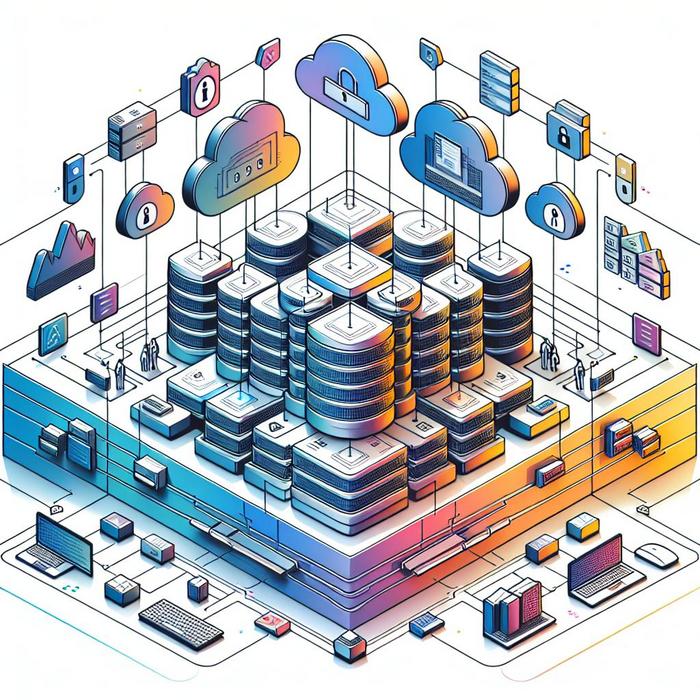Table of Contents Hide
What Makes a Data Catalogue Essential for E-Invoicing?
 9 MIN. READING
9 MIN. READING
Data Catalogue: The Unseen Hero Of E-Invoicing
How can large enterprises streamline their e-invoicing processes to achieve unprecedented efficiency? In today’s interconnected business landscape, e-invoicing has become essential for financial operations. Yet, the complexities of managing the data underpinning these transactions can be daunting. This is where a robust data catalogue proves its worth, offering a centralized, organized view of all data assets related to e-invoicing. A data catalogue transforms raw data into valuable information, empowering organizations to understand, govern, and leverage their data effectively. For CIOs, CTOs, and other IT leaders, this translates to enhanced control, improved compliance, and faster decision-making.
Unlocking the Power of a Centralized Data Repository
What advantages does a data catalogue offer in the context of e-invoicing? Consider the challenge of locating a specific invoice detail amid a vast sea of financial data. A data catalogue simplifies this process by providing a searchable index of all data elements, their locations, and their relationships. This eliminates time-consuming manual searches, freeing up valuable resources for more strategic initiatives. Moreover, it promotes data discoverability, enabling different departments to access and analyze invoice data for their specific needs. By providing a single source of truth for all e-invoicing data, a data catalogue also enhances data consistency and accuracy, minimizing the risk of errors and discrepancies. This is paramount in maintaining compliance with financial regulations, such as those related to tax reporting and auditing. Tools for automating compliance, like those discussed in this article on automating compliance using software tools, can further enhance this process.
Improving Data Governance and Compliance for E-Invoicing
Are regulatory hurdles impeding your e-invoicing workflows? Data governance is no longer a mere checkbox exercise; it’s a strategic imperative. In the realm of e-invoicing, data governance ensures that invoice data is handled securely and ethically, in compliance with relevant industry standards and government regulations. A data catalogue plays a crucial role in enforcing data governance policies by providing a clear view of data access permissions, data lineage, and data quality metrics. This transparency allows organizations to identify and rectify data quality issues, ensuring data integrity and building trust among stakeholders. With a well-implemented data catalogue, meeting regulatory requirements becomes less of a burden and more of a streamlined process, leading to reduced compliance costs and enhanced reputation. Further exploration of this topic can be found in this helpful resource on e-invoice instructions.
Optimizing Data Operations for Competitive Advantage
Can optimized data operations give your organization an edge in the market? In today’s data-driven world, optimizing data operations is crucial for gaining a competitive advantage. A data catalogue enables organizations to identify and eliminate data silos, paving the way for more efficient data analysis and reporting. By providing a comprehensive view of all e-invoicing data, a data catalogue allows businesses to identify trends, patterns, and anomalies that would otherwise remain hidden. This information can be invaluable in making strategic decisions related to pricing, inventory management, and customer relationships. Efficient data operations are key to improving financial forecasting and resource allocation, ensuring profitability and sustainable growth. More specifically, cloud solutions have become increasingly critical in optimizing these data operations. For those interested in exploring the potential of cloud solutions, we recommend reading this blog post on cloud solutions for data operations.
Database Virtualization: Accelerating E-Invoicing Processes
How can database virtualization enhance the agility of e-invoicing operations? Database virtualization presents a compelling solution to the challenges of data provisioning for e-invoicing workflows. By creating a virtual data layer, organizations can access and manipulate invoice data without impacting the underlying source systems. This enables faster data provisioning for testing, development, and analytics, accelerating the development lifecycle of e-invoicing applications. Database virtualization also facilitates data anonymization, ensuring that sensitive invoice data is protected during development and testing phases. This approach not only enhances security but also simplifies compliance with data privacy regulations.
Streamlining Data Provisioning for Enhanced Efficiency
What are the specific benefits of accelerated data provisioning in the context of e-invoicing? Traditional data provisioning methods can be slow and cumbersome, hindering the pace of innovation. Database virtualization streamlines this process by allowing teams to access the data they need, when they need it, without lengthy delays. This accelerated provisioning empowers developers to build and test e-invoicing applications more rapidly, reducing time to market for new features and functionalities. Furthermore, it enhances the agility of analytics teams, enabling them to quickly access and analyze invoice data for real-time insights. For more information on the technical aspects of e-invoicing in specific sectors like petroleum operations, this resource offers further insights.
Data Anonymization: Protecting Sensitive Information
How does data anonymization contribute to secure e-invoicing practices? In an increasingly interconnected world, protecting sensitive data is paramount. Data anonymization, also known as data masking, plays a crucial role in safeguarding confidential invoice data from unauthorized access. By replacing sensitive data elements with realistic but fictional values, organizations can ensure that data privacy is maintained during development, testing, and other non-production activities. This approach mitigates the risk of data breaches and helps organizations comply with stringent data protection regulations. For a deeper understanding of the evolving landscape of security testing tools, consider this informative article on security testing tools. Data anonymization, coupled with robust security measures, provides a strong defense against data security threats, enhancing trust and mitigating reputational damage. In industries like healthcare, where data sensitivity is particularly high, a comprehensive approach to data anonymization is essential. This resource on healthcare catalogue management provides further context in this area. Understanding the intricacies of managing invoice data is crucial for maintaining accurate financial records and facilitating seamless transactions. This resource on e-invoicing updates offers valuable insights into the latest trends and best practices in this domain.
Ensuring Data Integrity for Seamless E-Invoicing
How can organizations guarantee the reliability and consistency of their e-invoicing data? Maintaining data integrity is fundamental to the success of any e-invoicing system. A robust data catalogue helps organizations achieve this by providing a clear overview of data lineage, allowing them to track the origin and transformation of data throughout its lifecycle. This transparency is essential for identifying and resolving data quality issues, ensuring that invoice data is accurate, complete, and consistent. By enforcing data validation rules and implementing data quality checks, organizations can minimize the risk of errors and discrepancies in their e-invoicing processes. This level of control is critical for maintaining financial accuracy and building trust with trading partners. This resource from the Business Payments Coalition offers a comprehensive overview of the landscape.
Leveraging Data for Strategic Decision-Making
What role does data analysis play in optimizing e-invoicing strategies? Data analysis is an integral part of any successful e-invoicing strategy. A comprehensive data catalogue empowers organizations to unlock the full potential of their invoice data by providing a unified platform for data exploration and analysis. By leveraging advanced analytics tools, organizations can gain valuable insights into spending patterns, vendor performance, and other key metrics. This data-driven approach enables businesses to make informed decisions about optimizing payment terms, negotiating better contracts with suppliers, and improving overall financial performance. For a deeper understanding of data anonymization techniques and their relevance to e-invoicing, this article on data anonymization techniques provides valuable insights.
Building a Robust Data Infrastructure for E-Invoicing
What key elements constitute a robust data infrastructure for e-invoicing? A robust data infrastructure is the foundation of any successful e-invoicing implementation. This infrastructure should include a secure and scalable data storage solution, efficient data integration mechanisms, and robust data governance processes. A well-designed data architecture ensures that invoice data is readily accessible, while simultaneously maintaining data integrity and security. By investing in a robust data infrastructure, organizations can ensure the long-term success of their e-invoicing initiatives and lay the groundwork for future innovations in financial operations. For insights into managing data privacy regulations, which are crucial for e-invoicing compliance, this resource on mastering data privacy regulations offers valuable guidance.
Managing Data Complexity in Global E-Invoicing
How can businesses navigate the complexities of international e-invoicing regulations? Expanding e-invoicing operations across international borders presents unique challenges related to varying data formats, regulatory requirements, and tax compliance. A well-structured data catalogue can help organizations navigate these complexities by providing a centralized platform for managing data from different countries and regions. By standardizing data formats and implementing automated validation rules, businesses can ensure compliance with local regulations and streamline their global e-invoicing processes. This resource on Malaysia’s e-invoice guidelines provides a specific example of how one country is approaching these challenges.
Scaling E-Invoicing Operations with Confidence
What considerations are essential when scaling e-invoicing operations? As businesses grow and expand, their e-invoicing systems must be able to handle increasing volumes of transactions and data. Scalability is therefore a critical consideration when designing and implementing an e-invoicing infrastructure. Database virtualization offers a compelling solution to this challenge by providing a flexible and scalable data layer that can adapt to changing business needs. By leveraging database virtualization, organizations can ensure that their e-invoicing systems can handle future growth and maintain optimal performance. This brochure on e-invoicing provides further context on this topic. Additionally, optimizing data for mobile applications, especially as they relate to e-invoicing, becomes increasingly important. For guidance on this, refer to this resource on optimizing data for mobile applications. It emphasizes the importance of efficient data handling for seamless mobile experiences.
Ensuring Data Security in E-Invoicing
How can businesses safeguard sensitive financial information within their e-invoicing systems? Security is paramount in any e-invoicing implementation. Organizations must implement robust security measures to protect sensitive invoice data from unauthorized access, modification, or disclosure. This includes implementing strong access controls, encryption protocols, and regular security audits. By prioritizing data security, businesses can mitigate the risk of data breaches and maintain the trust of their customers and partners. Furthermore, consider the importance of efficient vendor services catalogs. A well-organized catalog, as highlighted in this resource on vendor services catalogs, can streamline procurement processes and enhance data management within the e-invoicing ecosystem.


